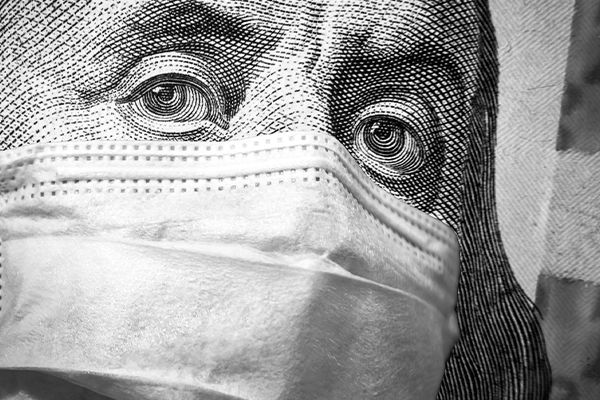In April of this year, 21.7% of children in the United States had at least one parent who was unemployed, and that number was still 11.3% as of August, both historically high rates according to a paper published by the Center on Poverty and Social Policy at the Columbia School of Social Work. The previous high water mark was 13.2% during the Great Recession.
The share of children with all parents unemployed peaked in April at 12.1%, the highest rate since data was available in 1967, up from just 2.5% in January of this year. That’s equivalent to one in every 10 children having all parents unemployed. The trend is moving in the right direction, but as of August, there were still 5.2% of children with all parents unemployed in the U.S.
High rates of hardship and unemployment since the onset of the pandemic have besieged families nationwide, with potential long-term consequences for child wellbeing and development. Unsurprisingly, substantial variability in the rate of children with unemployed parents exists based on geographic location and race/ethnicity.
The hardest-hit area of the country, Las Vegas, averaged 35.8% across the summer months, while Detroit, New Orleans, New York (Metro), Boston, Sacramento, and Orlando were hit hard as well--each averaging around 20%. In Oklahoma City, the average was 11.5%, more than three times what it was from January to March of this year, while Tulsa averaged 12.4%, roughly twice the rate from January to March.
According to the data provided, in April, greater than one in four Hispanic children had at least one unemployed parent, with that number still at one in five as of August. Black and Asian families peaked in April at around 23.5%, while white families peaked at just 19.1%. The data suggests that while the crisis has spared no particular racial or ethnic group, the effects on parental unemployment were disproportionately higher among Hispanic, Black, and Asian families.
The overall burden of unemployment during this time has been negatively skewed toward mothers rather than fathers, as gender imbalances in domestic care responsibilities are still widely existent. With schools requiring distance or at-home learning and childcare facilities shuttered, mothers were more likely to become unemployed in order to provide supervision and care during normal working hours. At its peak in April, unemployed mothers reached 18.8% compared to just 14.4% for fathers, before falling to 10% and 6% in August, respectfully.
The disparity between unemployed mothers and fathers has been shrinking since 1967 when there was a roughly 4.9% difference in rates. As of January 2020, the share of unemployed mothers versus fathers was 4.3% and 3.2%, a difference of just 1.1%. At the April peak, the difference was up to 4.4% and continued to maintain a difference of 4% through August -- the highest the gap has been since the 1970s.
Sampling among unemployed mothers and fathers through Phase I of the Census Household Pulse Survey conducted by the U.S. Census Bureau showed that 30% of mothers reported childcare responsibilities as the primary reason for unemployment as of July. Among fathers, only 15% attributed care responsibilities to the primary reason for being unemployed. For mothers with children not able to attend school in-person, care responsibilities jumped to 36% compared to just 29% for those whose children were able to attend school in-person.
Higher rates of food insufficiency missed rent payments and frequent anxiety were all noted among families with children who had an unemployed parent compared to those who did not. Further evidence from the Census Study showed 24.1% suffering from high rates of food insufficiency compared to just 11.5% among those with parents that were employed. These families were also twice as likely to report missed rent payments and 9.1% more likely to experience frequent anxiety.
According to the study, the consequences of parental unemployment over an extended period may directly affect child wellbeing and development. “Reduced economic resources and elevated stress increase the likelihood that a child will struggle in school, need to repeat a grade, or have behavioral challenges in the classroom.” Children who experience longer durations of income volatility are less likely to attain a college degree and more likely to be unemployed themselves in young adulthood, often earning lower wages than their peers.
Put simply, the effects on our society inflicted by the COVID-19 pandemic have far and long-reaching consequences that will negatively impact families for decades and possibly generations. This is but one of many direct and indirect impacts that will be studied for years to come.


